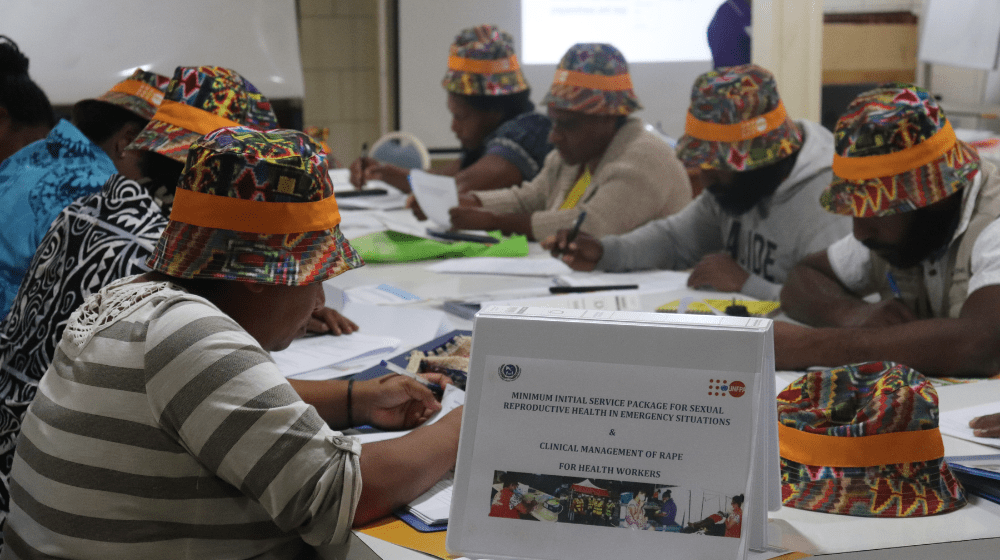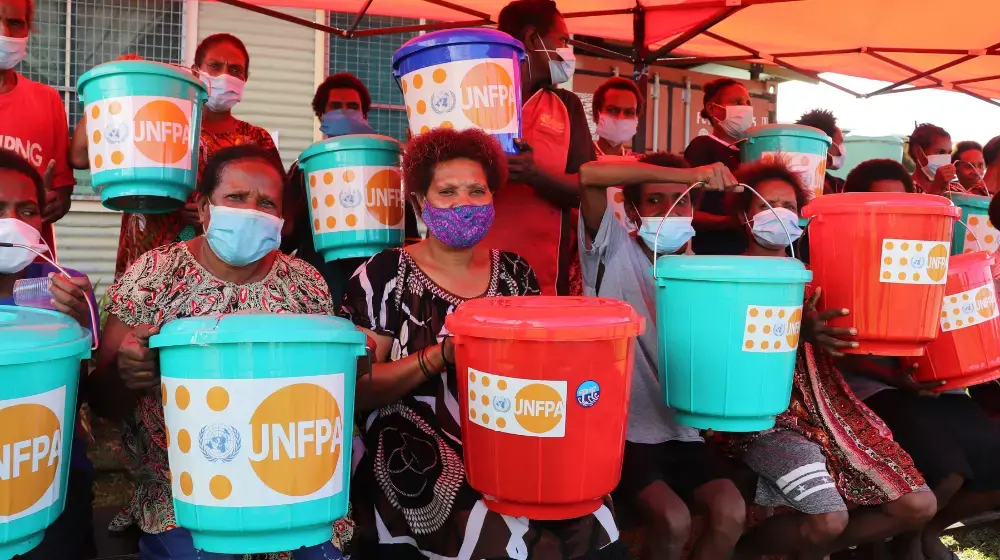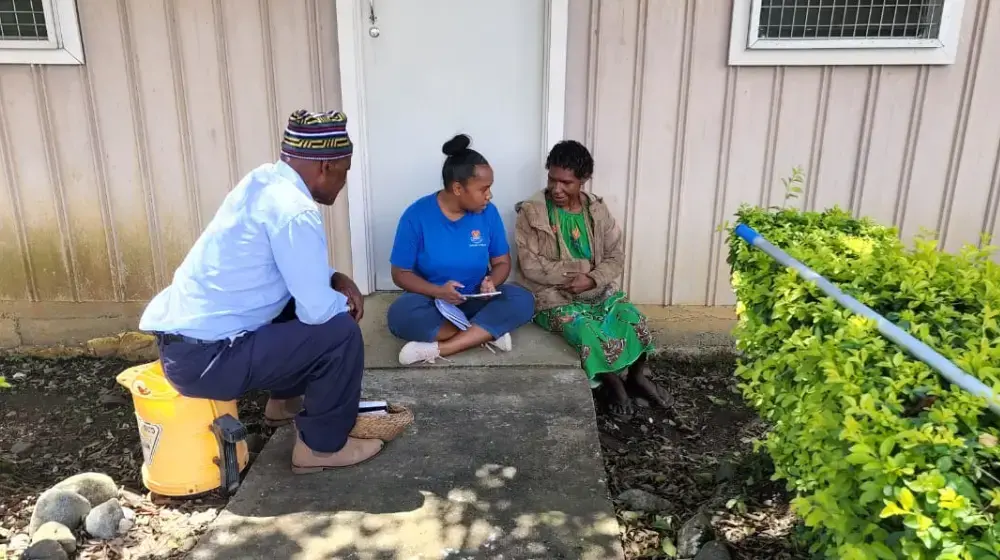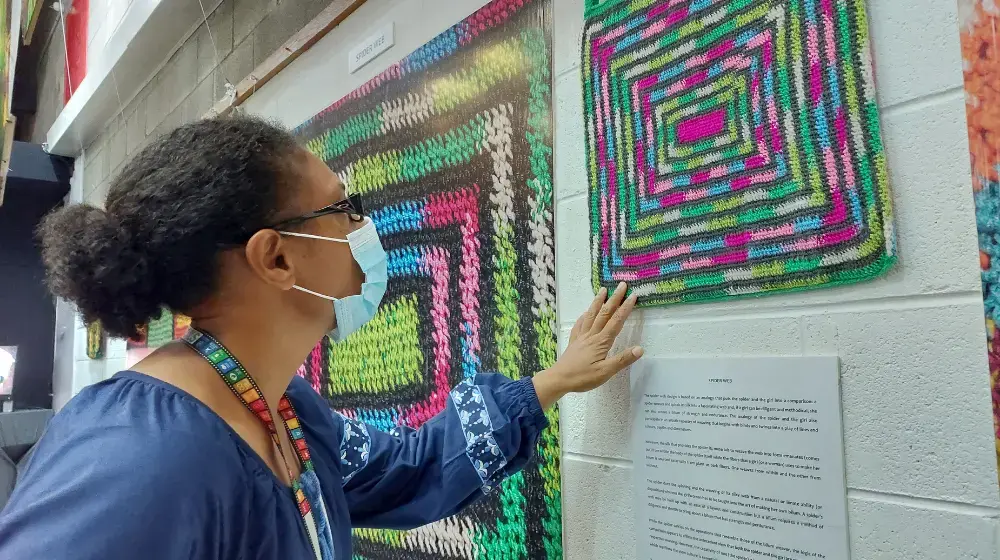“Men and boys play a crucial role during times of humanitarian crisis in a community or Province,” shared Dr. Betty Koka, the Director of Curative Health Services. Enga Provincial Health Authority. “It is important to involve them as key players during such times.”
“Most importantly, safety and security can be provided to survivors of GBV, SARV, and rape as an immediate response to times of crisis.”
Dr. Betty was one of 20 health workers from facilities throughout the 5 districts of Enga Province who joined a week-long training on the Minimum Initial Service Package (MISP) for sexual and reproductive health in emergency situations and the clinical management of rape.
According to Dr. Betty Koka, while these health workers are already trained to provide sexual reproductive health services, this is the first training on how to provide these services in humanitarian settings, especially in conflict and natural disasters. This specialized training, led by the PNG Family Health Association, in partnership with the United Nations Population Fund and funding support from USAID, is important as humanitarian emergencies can disrupt access to supplies and support that would be available during the facilities’ regular operations. Emergencies may also place greater stress on facilities as displaced persons are vulnerable to gender-based and sexual violence.
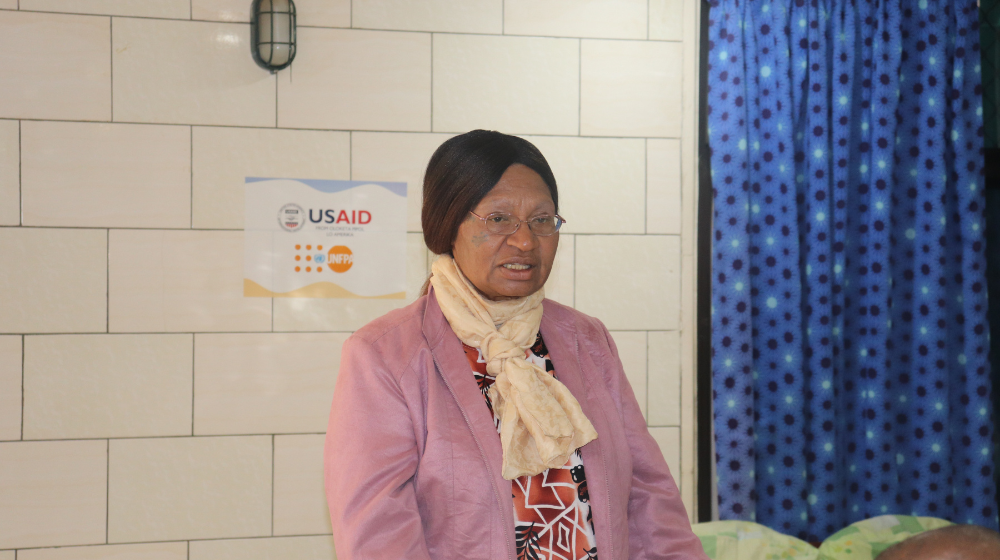
“We know that disasters will happen, but we do not know when they will occur,” shared Dr Betty. “Through this training, our health workers will learn how to respond to the immediate health needs of vulnerable populations, especially women and girls and people living with disabilities.”
The importance of engaging men and boys during such emergencies was a focus throughout the training.
“In a cultural setting such as Enga Province, where men and boys are given more prominence, engaging them as partners for better sexual and reproductive health is key to ensuring women and girls have access to their SRH rights and needs.”
“We have to start teaching our communities that women are equal,” said Dr Betty. “To achieve that, men and boys are key partners in development and change.”
Participants shared their gratitude for the insights provided to them when it comes to sexual and reproductive health during emergency situations. The Enga PHA now plans to roll out this training at the district level within the remaining months.
“These 20 health workers will now go into their district health facilities and train their local staff,” shared Dr Betty. “Ideally, these district trainings will take place between August and November.”
“I am happy for this training and the partnership UNFPA has provided to the Enga Provincial Health Authority.”
UNFPA and Humanitarian Emergencies
UNFPA works closely with government, service providers, civil society organizations and other partners to build the capacity of institutions and communities and to advocate for sexual and reproductive health and protection needs during humanitarian emergencies. In Enga Province, UNFPA, in partnership with the Enga Provincial Administration and Enga Provincial Health Authority and with funding from USAID, is training frontline service providers in mental health and psychosocial support, minimum essential service package for humanitarian emergencies, and clinical management of rape. In addition, UNFPA has delivered menstrual hygiene kits and reproductive health kits to communities displaced by election-related violence in the Province.

